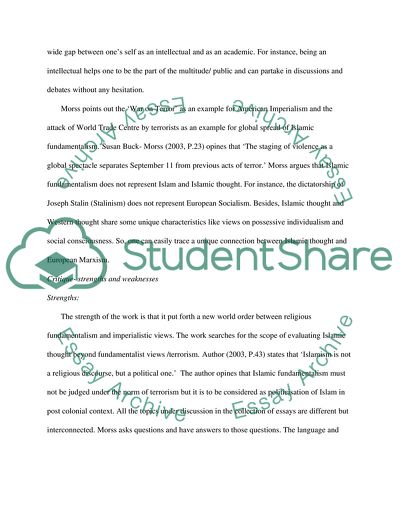Cite this document
(Thinking Past Terror - Islamism and Critical Theory on the Left' by Su Book Report/Review - 2, n.d.)
Thinking Past Terror - Islamism and Critical Theory on the Left' by Su Book Report/Review - 2. Retrieved from https://studentshare.org/military/1731955-book-review
Thinking Past Terror - Islamism and Critical Theory on the Left' by Su Book Report/Review - 2. Retrieved from https://studentshare.org/military/1731955-book-review
(Thinking Past Terror - Islamism and Critical Theory on the Left' By Su Book Report/Review - 2)
Thinking Past Terror - Islamism and Critical Theory on the Left' By Su Book Report/Review - 2. https://studentshare.org/military/1731955-book-review.
Thinking Past Terror - Islamism and Critical Theory on the Left' By Su Book Report/Review - 2. https://studentshare.org/military/1731955-book-review.
“Thinking Past Terror - Islamism and Critical Theory on the Left' By Su Book Report/Review - 2”. https://studentshare.org/military/1731955-book-review.


